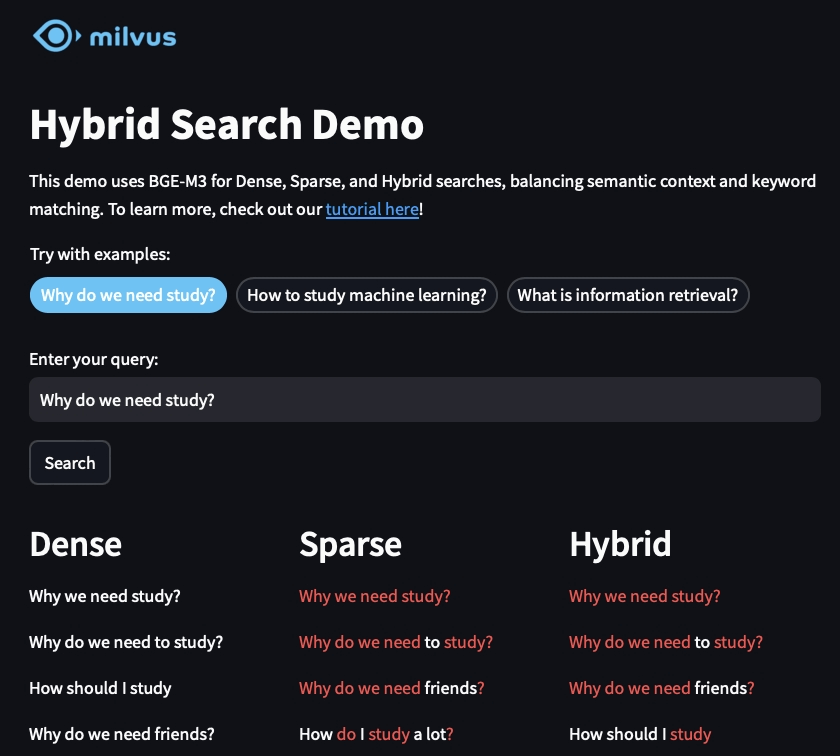Hybrid search architectures combine keyword-based and vector-based search techniques to improve the accuracy and flexibility of information retrieval systems. By integrating traditional methods like BM25 (used in keyword search) with modern approaches like dense vector embeddings (used in semantic search), hybrid systems address the limitations of each method when used alone. For example, keyword search excels at matching exact terms but struggles with synonyms or contextual meaning, while vector search captures semantic relationships but may miss specific keyword matches. A hybrid approach balances these strengths, allowing developers to handle both precise queries and broader, context-driven searches effectively.
One key benefit of hybrid architectures is their ability to handle diverse data types and query scenarios. For instance, in an e-commerce application, a user might search for “affordable wireless headphones with noise cancellation.” A keyword-based system could match “wireless headphones” and “noise cancellation” but might overlook products described as “budget” instead of “affordable.” A vector-based system could infer the semantic intent behind “affordable” but might prioritize irrelevant products if the query includes nuanced specifications. By merging results from both approaches—using weighted scores or reranking strategies—the hybrid system ensures that relevant products appear higher in results, even if descriptions vary. This flexibility is particularly useful in applications like content recommendation engines or enterprise knowledge bases, where queries range from highly specific to abstract.
Another advantage is improved scalability and performance optimization. Hybrid architectures allow developers to allocate resources strategically—for example, using fast keyword indexing for initial filtering and applying computationally intensive vector similarity calculations only on the most promising candidates. This reduces latency and infrastructure costs. In a customer support chatbot, a hybrid system might first retrieve FAQ articles using keywords (e.g., “reset password”) and then use vector search to find related troubleshooting guides that don’t contain the exact phrase but address the underlying issue. Additionally, hybrid systems can be fine-tuned for specific domains: a medical search tool might weight vector results higher for symptom-related queries but prioritize keyword matches when searching for exact drug names. This adaptability makes hybrid architectures a pragmatic choice for developers balancing precision, speed, and resource constraints.
